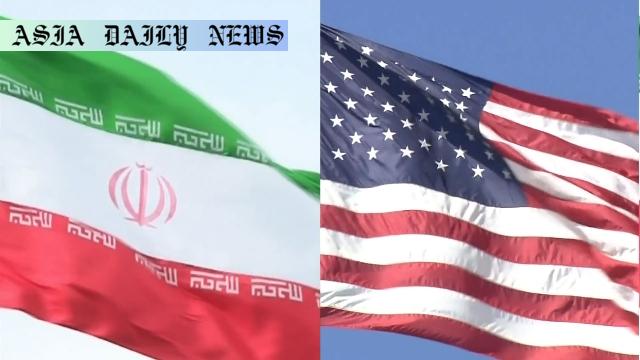Nuclear Talks: US and Iran debate terms for critical negotiations as Tehran expresses distrust, highlighting uncertain outcomes.
US and Iran indicate differing views on potential nuclear talks.
The US signals readiness to facilitate dialogue, while Iran remains skeptical.
Sanctions and uranium enrichment remain central debates.
Qatar mediates communication amid sensitive geopolitical dynamics.

Disparate Signals: US and Iranian Stances on Nuclear Talks
The prospect of US-Iran nuclear talks remains shrouded in uncertainty as conflicting signals emerge from both ends. The United States has suggested its willingness to resume negotiations, an attempt to mend ties following a tumultuous period. However, Iranian officials, voicing deep-seated distrust, have cast doubts over these prospects. Key geopolitical issues, such as uranium enrichment and sanctions, further complicate any steps toward a possible consensus. According to White House Press Secretary Karoline Leavitt, ongoing communication, with Qatar playing the role of mediator, reflects a continued pursuit of resolutions. Yet, for the talks to materialize, both nations must address fundamental trust deficits and differing agendas.
US Strategies: Easing Sanctions to Reignite Negotiations
The Trump administration appears poised to strategize its way through diplomatic standoffs by considering an easing of sanctions on Iran. This plan possibly includes unfreezing billions of dollars in Iranian funds to incentivize Tehran’s participation in talks. Balancing act diplomacy seems central for Washington, which has expressed a resolute stance on halting Iranian uranium enrichment while engaging in behind-the-door discussions. These efforts underscore the administration’s awareness of Iran’s persistent nuclear ambitions and the threats posed to international stability. However, Iran’s strong rhetoric of defiance and distrust, particularly after reported US attacks on its nuclear facilities, threatens to derail such initiatives and necessitates a more calculated mutual approach.
Iran’s Deep-rooted Distrust and Regional Implications
On the Iranian side, Foreign Minister Abbas Araghchi informed state media that no agreements or commitments regarding talks have been made, signaling skepticism. Tehran’s leadership remains wary of America’s intentions, leveraging accusations of past hostile actions to consolidate domestic political narratives. Iran’s nuclear program has taken center stage in regional geopolitics, especially with its implications for key Middle Eastern nations. Israel’s concerns over Iran’s ambitions exacerbate the complexity of negotiations, further compounded by alliance systems and Qatar’s intermediary role. Iran’s vocal stance on continuing its nuclear efforts also highlights its resolve to challenge unilateral dictates, even at the cost of economic sanctions.
The Road Ahead: Challenges to Achieving Progress
The disparity in positions between the United States and Iran reflects a broader challenge faced in fostering diplomacy amid entrenched oppositions. With international attention shifting towards these potential nuclear talks, the stakes remain high for state actors involved. Bridging the psychological and policy gaps requires trust-building exercises, clearer communication, and addressing contentious issues head-on. A larger question looms over the sincerity of both parties in reaching an equitable agreement that protects global peace without compromising national sovereignty. As both nations stand firm yet engage indirectly, the world closely watches, hoping for a resolution to one of the most complex geopolitical dilemmas of our times.



Commentary
Balancing Trust and Diplomacy in High-Stakes Negotiations
The evolving US-Iran narrative on nuclear talks lays bare critical concerns surrounding diplomacy’s fragile nature. In a setting clouded by mistrust and historical antagonisms, the dialogue between these two nations reminds us of the ripple effects such high-stakes negotiations create worldwide. For the United States, balancing economic strategies like sanctions with meaningful engagement remains crucial. While sanctions often serve as coercive measures, their long-term effectiveness is undermined when alternative avenues for cooperation are absent. Meanwhile, Iran’s equally firm demeanor reflects its skepticism—understandable given a history of fraught interactions. Overcoming this mistrust will require substantive assurances rather than mere rhetoric.
Geopolitical Underpinnings of US-Iran Nuclear Tensions
The underlying themes of power dynamics and regional stability dominate discussions about US-Iran relations. While Iran’s nuclear ambitions stir concerns from neighboring countries and Western powers, it also bolsters Tehran’s positioning as a dominant regional actor. This interconnectedness of nuclear policy with multi-layered regional complexities underscores why aligning both national and global interests remains a monumental task. Mediators, such as Qatar, face the arduous job of navigating these complexities by fostering dialogues not just around technical disagreements but emotional and political grievances too.
A Hopeful Yet Cautious Outlook
Although challenges persist, a pathway for reconciliation remains plausible. Diplomacy, after all, thrives in moments of uncertainty. Enhanced international cooperation and insistence on transparency may bridge gaps between Tehran and Washington. Moreover, public pressure on both administrations to achieve amicable solutions could drive officials towards constructive measures. Ultimately, success will depend on each party’s willingness to pause historical grievances in favor of mutual benefit. The world indeed waits with bated breath to see whether diplomacy succeeds in preventing further conflict and fostering long-term peace.